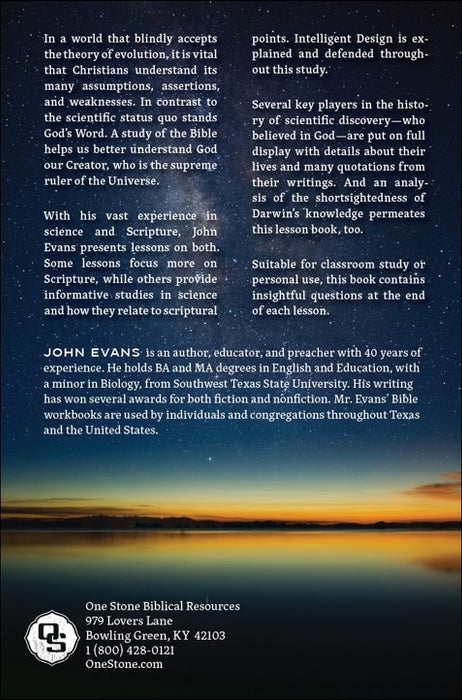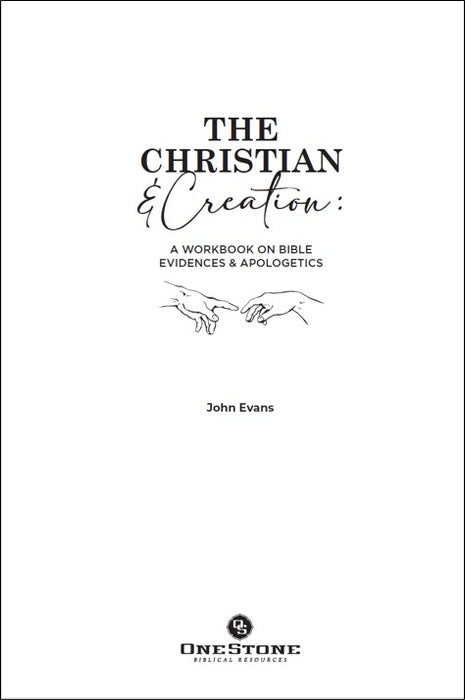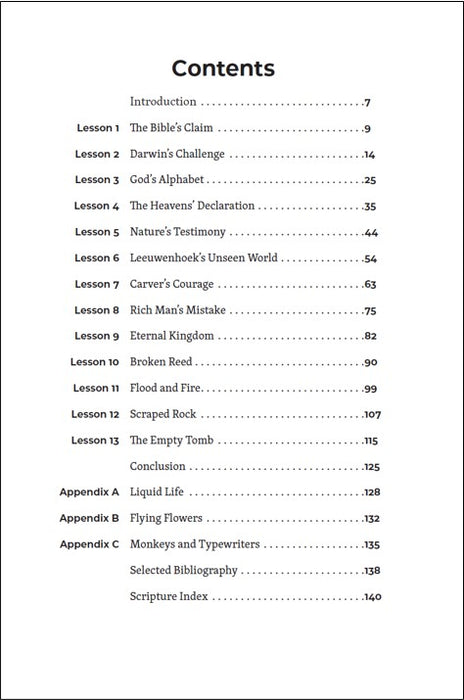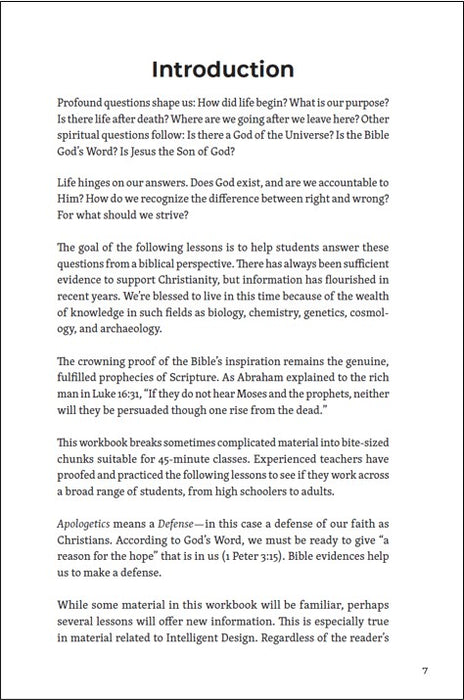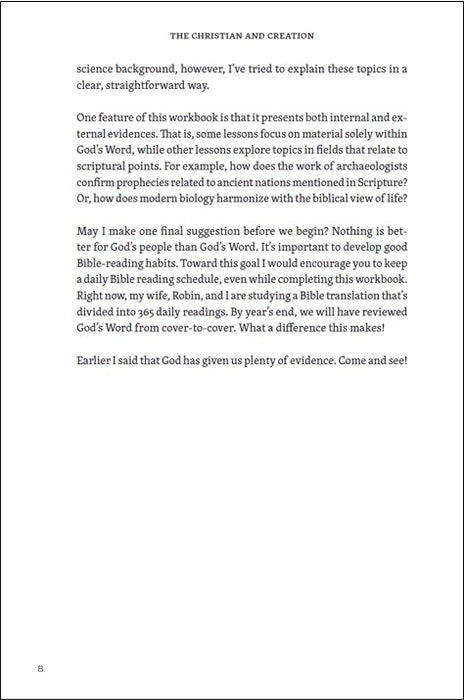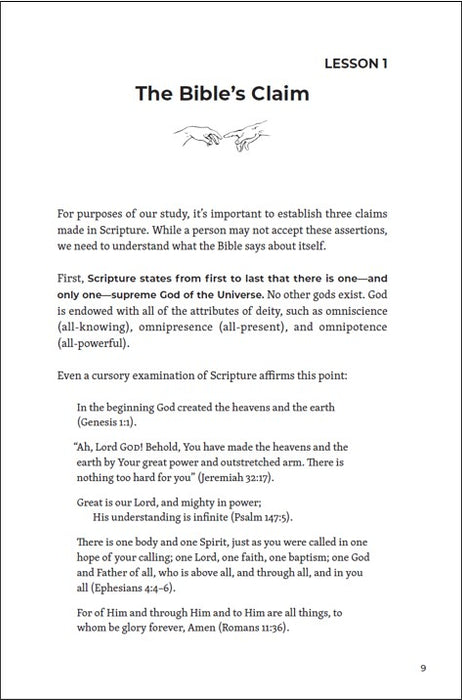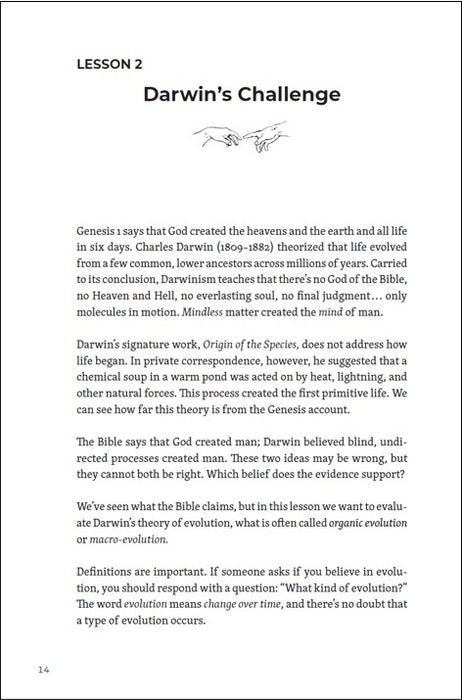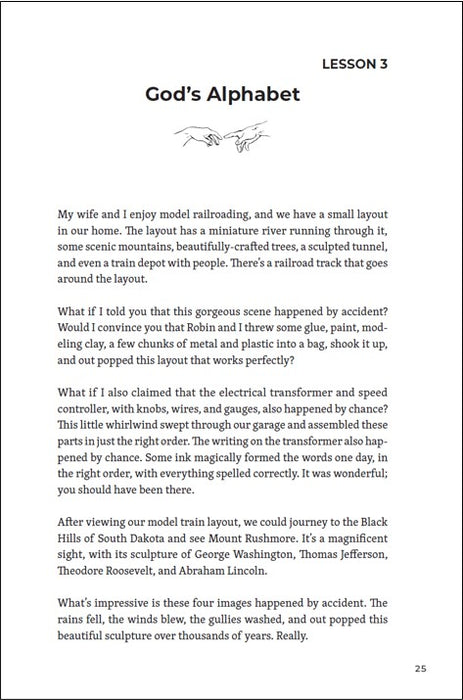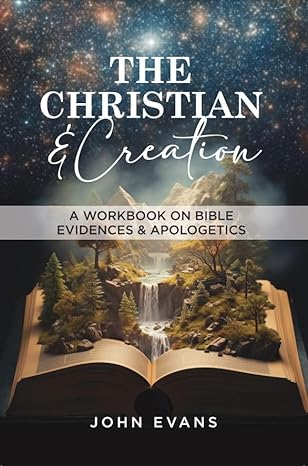
The Christian And Creation - A Workbook On Bible Evidences and Apologetics
A Workbook on Bible Evidences & Apologetics by John Evans
Does God exist? Is the Bible God’s Inspired Word? Is Jesus the Son of God and Savior of the World? Do we have enough information to answer these questions?
In this Bible-based workbook, John Evans uses both internal and external evidences to build our faith. There has always been plenty of proof for Christianity, but information has flourished in recent years.
This study breaks sometimes complicated material into bite-sized chunks suitable for high school through adult classes.
Topics include Darwinian evolution, genetics, Bible prophecies about specific nations, and history. Lessons such as “God’s Alphabet” explore new information in Intelligent Design. The workbook concludes with a separate study of the messianic prophecies, plus three appendices for enrichment.
One special feature of The Christian & Creation is the thought-provoking questions which encourage further investigation.
Truly, God’s “invisible attributes are clearly seen,” so that we are “without excuse” (Romans 1:20)

